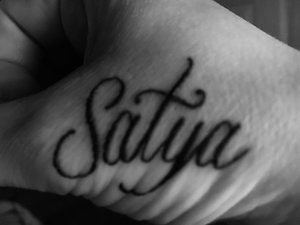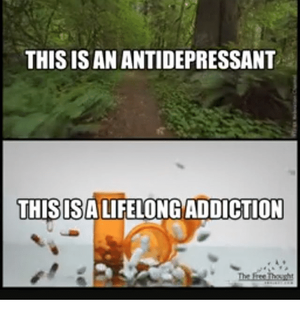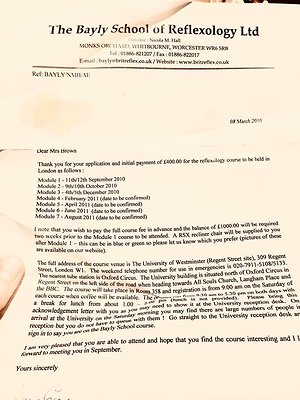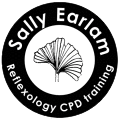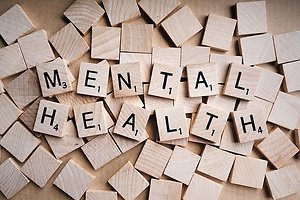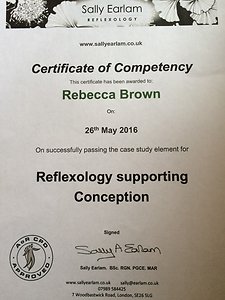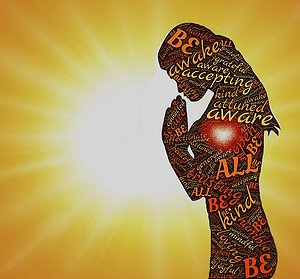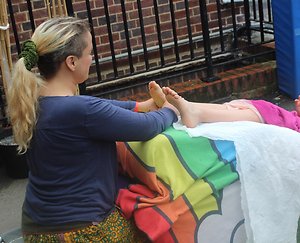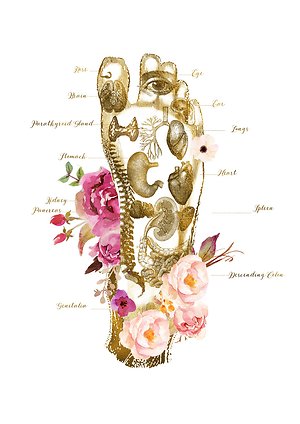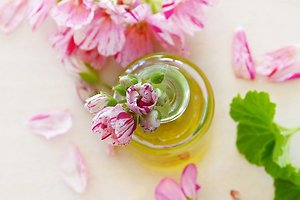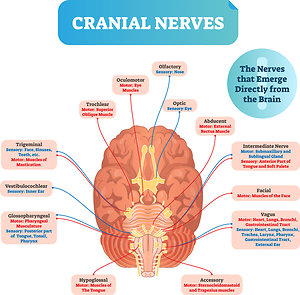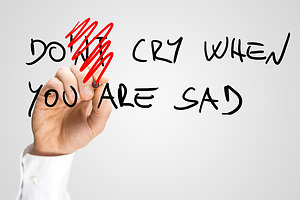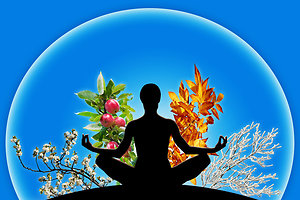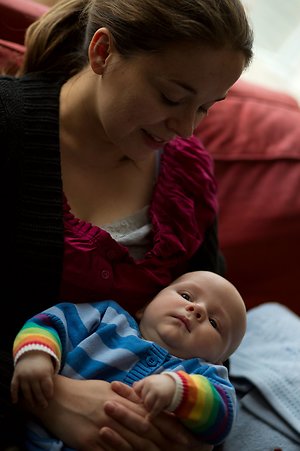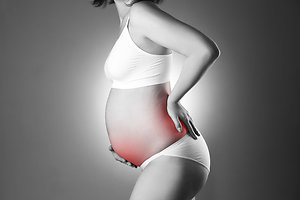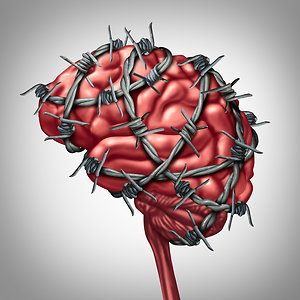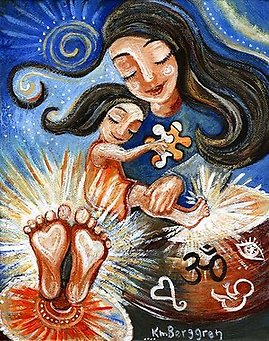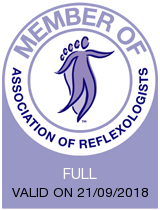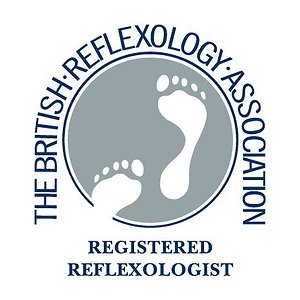22nd January 2020
5th January 2020
@9
6th November 2019
11th October 2019
23rd September 2019
19th September 2019
A moment of clarity during reflexology
23rd July 2019
A leaver's party with a difference
13th July 2019
2nd July 2019
Look, I'm the featured blog on the Mansion website!
1st July 2019
25th June 2019
??? THE VAGUS NERVE ???
Have you ever noticed that what you eat can affect how you feel? Do you feel really heavy and sluggish after eating fast food? And likewise do you feel light & energetic after eating fruit and vegetables?
Have you ever wondered why there seems to be a link between digestive issues and mental health? About 60% of IBS sufferers also meet the criteria for a psychiatric disorder (Edward Blanchard PHD). Just think of the day-to-day language we use without even thinking about it – “butterflies in the stomach” referring to feeling nervous; a ‘gut instinct’ meaning you feel a certain way about a situation without knowing why.
This could all be down to your vagus nerve (pronounced as in ‘Las Vegas’).
This very clever but not-often-heard-of nerve is the longest nerve in the autonomic nervous system of the human body, and at its simplest level connects the brain to the digestive tract, and other vital organs such as the heart and lungs.
Stimulating the vagus nerve can improve ‘vagal tone’ which activates the parasympathetic nervous system and means that you can relax faster after experiencing stress.
Certainly in my personal practice, anecdotally I often find that people experiencing stress present with tender reflexes in the digestive area. And with my own diet I have found that as I am getting older there is such a strong link between what I eat and my subsequent moods.
Major culprits for causing digestive upset appear to be gluten, dairy, meat, soya and of course refined sugars. I do not have qualifications in nutrition therefore cannot advise on specific cases but if you are feeling any of the above it can sometimes be worth visiting a nutritionist for an intolerance test or carrying out an elimination diet and noting any improvements.
The good news is that in reflexology we have a specific reflex we can use to stimulate the vagus nerve and hopefully work on that vagal tone to encourage your increased gut and mental wellbeing. I am also trained in Mindful Reflexology which includes sequences that work the digestive and brain reflexes together to encourage homeostasis between them.
If you have any questions at all about this or how reflexology may help you, then please do not hesitate to get in touch.
14th June 2019
Who has roses growing in their garden this summer?
Not only does the rose have a timeless classical beauty, but the oil derived from it has many healing properties.
- Rose oil is good for mature, dry or sensitive skin and helps to constrict capillaries reducing thread veins.
- It can relieve cramps and activate a sluggish circulation.
- It cleanses & purges toxins from the body - and here's the best one - it can help with hangovers!
- It is good for the female reproductive system by helping to regulate the menstrual cycle and calming PMT.
- Rose soothes the emotions, can help with depression, grief and resentment - lifts and heals the heart.
Rose is one of the oils that can be used during an Aroma-Reflex session. Aromareflex combines the power of essential oils and Reflexology together you will receive a full reflexology treatment and to enhance the benefit of the treatment you will have a blend of oils chosen for just for you. It an extremely relaxing and nurturing experience.
Aromareflex uses a carefully selected range of oils that are safe to use but also extremely beneficial. You will have your blend applied throughout your treatment. This treatment is longer than a regular reflexology session as it also incorporates advanced massage techniques. You will be given your blend pot to keep so that you can maximise the benefits of your session.
11th June 2019
???Crying during treatment???
This is something that has come up frequently recently so I’ve felt drawn to write about it to reassure clients and potential clients.
It is perfectly normal to cry during reflexology treatments! And if you do, there is no need whatsoever to be ashamed or embarrassed, or apologise for yourself.
The reason it happens, I believe is this. Reflexology induces a state of very deep relaxation and it is in that state that emotions we have buried deep in our subconscious begin to surface. Or sometimes these emotions are not even buried, it can be that when we finally ‘stop’ and have space to ourselves we can fully experience them.
Furthermore we can store emotions in parts of our body, for example, how on a metaphysical level the lungs represent the tree of life, and issues with letting go & grief can manifest through the lung reflex (Reflexes: physical & emotional,by Tracey Smith, Sally Earlam, Laura Franzen, Sue Ricks & Jane Sheehan)
The best thing to do if you feel tearful is to let it flow – don’t try to hold it in. Experience the emotion and acknowledge it and in doing so the process can be one of catharsis. You are welcome to cry throughout the whole treatment if necessary and you can either talk about it with me, or not talk about it. Your reflexology treatment is YOUR time and is about so much more than just having a nice foot rub.
30th May 2019
Isn’t it amazing how women’s cycles mirror the moon phases and the seasons?
The New Moon is typically associated with the onset of menstruation – this is known as a White Moon Cycle. The Full Moon is associated with ovulation, but should your body do the opposite and if menstruation starts at this time it is known as a Red Moon.
The White Moon Cycle is more common, possibly because the New Moon signifies the start of a new cycle, as does the onset of menstruation (this was even confirmed by a scientific study - https://www.ncbi.nlm.nih.gov/pubmed/3716780). However, women with a red moon cycle were traditionally thought of as healers and creative types. And of course, if your cycle is not a full 28-30 days then the type of cycle you experience can change over time. Apparently it is even possible to sync your cycle with the moon by spending more time in nature.
Moving on to the seasons – if we divide our cycle up into four phases we can see how they correspond to the seasons:
Winter (the few days before the onset of menstruation & the first few days of the cycle) – this can be a very dark time for some women. This is when PMT sets in, period pains, lethargy and the need to ‘go to ground’ & hibernate.
Spring (starts around day 5 of the cycle) – this can feel like being reborn – everything seems fresh & new and full of prospect.
Summer (the week leading up to ovulation) – this is when women are at their most creative & energetic and it is a good time for working on projects and a time to be productive.
Autumn (the week after ovulation) – things start to slow down, women can have less energy and have a sense of winding down.
It was only in my 30s that I started mapping my cycles (before then I was too busy being pregnant & breastfeeding) for it to be accurate anyway. And I found it fascinating how my own cycle is pretty much an exact copy of the above. I suffer with raging PMT and always dread the last week of Autumn when I can feel “Winter is coming….” (sorry couldn’t resist the GoT reference there! It certainly feels like the White Walkers are playing havoc in my head!)”
Have you ever tried mapping your cycles? If you are interested there are apps you can acquire for free that are very useful in helping you. You may be intrigued by what you find…
29th April 2019
***POSTNATAL DEPRESSION***
This is a difficult post for me to write…not because of trauma or anything like that, but because it feels slightly self-indulgent to be baring my soul to the world like this. So please forgive me the indulgence, I promise I am not looking for sympathy.
Lately I have had many conversations with new mothers and not-so-new mothers talking about their negative experiences surrounding giving birth and the feelings associated with it and the feelings of isolation, loss of identity and sheer overwhelm associated with new motherhood.
It can seem like every other mum has it sorted. Their babies are well-dressed, never cry, sleep through the night etc etc. The mums look happy, smiling, blissful. Never has ‘The Facebook Effect’ been more toxic in making the struggling mum feel so alone.
This is what prompted me to share the pictures of myself below. This is also Maternal Mental Health Week #MMHWeek2019 so it seems a poignant time.
What do you see when you look at these pictures? You probably see a happy smiling new mum relishing the time with her gorgeous baby?
Wrong! What you are actually looking at is a desperate, struggling new mum, gripped in the throes of crippling post-natal depression – and perhaps worst of all not even realising it.
The absolute cruelty of depression is that it distorts your thinking to such an extent that you do not even realise you are depressed. You feel that this is just the way life is. You are a rubbish person, a waste of a human being and quite frankly your family would be much better off if you weren’t here. And you genuinely believe that, so great is the cognitive distortion you are gripped in.
A particular memory sticks out of when my son was 6 weeks old. I went to a postnatal group and we had to go round the circle and say what the best part of motherhood was. Other mums were saying, “when I gaze into my baby’s eyes…” and other such phrases and I was sitting there thinking “Nothing, there is literally nothing good about it!” When it came to my turn, I ended up saying “when my baby sleeps and I get some to myself”. Everyone in the group laughed thinking I was trying to be funny. Never have I felt so alone!
I wasn’t diagnosed with PND until my son was 18 months old, when I simply could not put on a brave face any longer and ended up having a breakdown of sorts. Here finally began the long, slow road of recovery – there were many false starts and set-backs along the way, but almost 11 years in and I am pretty much sorted with my mental health.
So what helped?
There is no one thing I can attribute it to. First & foremost understanding the condition and that what I was feeling was a result of the depression, not my ‘true’ feelings. And then a combination of medication, psychotherapy, reflexology, yoga, making life changes, removing toxicity from my life, meeting beautiful souls who have become life-long friend to help & guide me on my journey.
It is not an easy journey or a quick fix and forces you to delve right inside yourself and turn yourself inside out, challenging everything you thought you knew was real.
So, even though all the other new mums you know seem to have nailed it all, chances are that they are feeling just as insecure as you. Those glittering facebook photos are showing the highlights – they are not reality. If you can relate to any of the above, please please do talk to someone – your other mum friends, parents, in-laws and speak to medical professionals to see what support is out there for you. And I am happy to answer any questions or help point you in the right direction if you would like me to. Things will get better I promise you, and you are doing a fantastic job whether you feel it or not <3 Much love to all the mums out there <3
16th April 2019
?? LAVENDER ???
Lavender season is almost here and what could be more beautiful than the relaxing scent of a sea of purple loveliness.
Lavender oil is one of the most commonly used essential oils, probably because of its many properties which include:
- Healing for bruises, inflammation, spots, burns, sunburn, eczema, psoriasis, insect bites
- Can ease muscular aches & pains
- Beneficial for the respiratory system, aiding with asthma, laryngitis, colds, throat infections, bronchitis
- Can boost the immune system
- Balances the nervous system & can aid with insomnia, depression, headaches, anxiety, stress, nervous tension, vertigo
And it can be used during pregnancy!
Aromareflex combines the power of essential oils and Reflexology together you will receive a full reflexology treatment and to enhance the benefit of the treatment you will have a blend of oils chosen for just for you. It an extremely relaxing and nurturing experience.
Aromareflex uses a carefully selected range of oils that are safe to use but also extremely beneficial. You will have your blend applied throughout your treatment. This treatment is longer than a regular reflexology session as it also incorporates advanced massage techniques. You will be given your blend pot to keep so that you can maximise the benefits of your session.
15th April 2019
When people first hear about reflexology it can sound rather ‘out there’- the parts of the body are reflected on the soles of the feet – really???
However, to me it has always made total sense and I have been struggling for a while to put this logic into words, so here is my attempt (which has taken a long time to formulate in my head!)
Firstly, it makes sense to me that Mother Nature would give us the means by which to heal ourselves. Just as nature provides us with plants and herbs that nourish and heal, and just as our body is built to heal itself – look at our body’s ability to fight off infection or heal a wound.
In an attempt to find something solid to support this belief I came across The Gaia Hypothesis. This was formulated by James Lovelock and co-developed by Lynn Margulis in the 1970s. To summarise very simply, The Gaia Hypothesis purports that the Earth is a living organism in itself with its components (plants, humans, animals etc) making up the components of this organism and acting in a self-regulating and symbiotic way. This parallels with the human body, whereby we are the living organism with our components being our organs (liver, kidneys, skin etc), again which self-regulate and act in symbiosis.
From this, I came upon another theory – that of the Macrocosm/Microcosm as developed by the ancient Greek philosophers. The crux of this is the part reflects the whole – ‘as above, so below’. In this theory the individual is a mini-world in themselves whose composition and structure correspond to the universe. There is unity between all life on the planet. Again this may seem rather hippyish and ‘woo woo’ to the scientifically-minded out there, but think for a second of examples of this that we see in our everyday life. A woman’s menstrual cycle reflects the phases of the moon, both in its length and the phases of her cycle correspond to the seasons of the year. Similarly the human life cycle as a whole can be compared to the seasons of the year – even Shakespeare was aware of this in his works.
So, if you are still reading, what my ramblings are aiming to say is that using this theory, the foot is the microcosm of the body (the macrocosm), and therefore the organs and body parks from the macrocosm are reflected in the microcosm of the reflexes.
And I will end with this beautiful quote from Plato, which again provides an example of the macrocosm/microcosm theory:
“Just as the body of the universe is spherical, and its soul is composed of orbits along which the planets wander, so too the soul of the human being is composed of orbits along which its emotions rove, and it inhabits the head, which is spherical. The rest of the human body exists merely to serve the head.”
18th February 2019
***PELVIC GIRDLE PAIN IN PREGNANCY***??
Anyone who has suffered from pelvic girdle pain (PGP) during pregnancy can attest to how painful it is! Pelvic girdle pain is an umbrella term which refers to pain in either the sacroiliac joints (the joints that connect the sacrum to the pelvis) or the symphysis pubis joint (the joint that connects the two halves of the front of the pelvis).
It can begin towards the end of the first trimester or even shortly before the birth. The most common symptoms are pain in the pubic area and groin, but pain can also be experienced in the back, inside of legs or hips. The pain is often made worse by parting the legs, walking, going up or down stairs or moving around in bed. It is often worse at night and therefore has a knock-on effect on sleep, which in turn has a knock-on effect on all aspects of general wellbeing.
So all in all PGP can make life pretty difficult! Even more so when there are other children that need looking after too.
???How can reflexology help????
As you will know, recently I completed my Advanced Maternity Training with Sally Earlam, where PGP was one of the aspects we focused on.
Two recent studies have shown promising results for PGP during pregnancy.
One study found that antenatal reflexology reduced labour duration for women who had experienced low back and/ or pelvic girdle pain during their pregnancy, compared with usual care and footbaths. (1)
The other found that there was a clinically significant reduction in pain following a block of 6 reflexology treatments in women suffering from lower-back or PGP. (2)
During a reflexology session it is possible to work the pelvic girdle area in a specific sequence which may contribute to the relief of pain.
If you are struggling with PGP and would like to see if reflexology can help you then please do get in touch to book a session.
(1) McCullough JEM, Close C, Liddle SD, Sinclair M, Hughes CM (2014)
A pilot randomised controlled trial exploring the effects of antenatal reflexology on labour outcomes.
Midwifery. 2017 55:137-144
(2) McCullough JEM, Close C, Liddle SD, Sinclair M, Hughes CM (2018)
A randomised controlled trial investigating the effects on beta-endorphin, cortisol and pregnancy related stress.
Complementary Therapies in Clinical Practice 2018 May; 31: 76-84
23rd January 2019
***RESEARCH & REFLEXOLOGY***
Back before Christmas, reflexology was adversely mentioned by a television presenter on a popular show – a person who apparently by his own admission had never experienced reflexology.
Unfortunately this is a view that it is not uncommon for reflexologists to experience, and I believe much of this has to do with a relative lack of formal research into this area.
To a point I can understand people wanting a degree of ‘proof’ and assertion – after all there are sadly unscrupulous people around willing to make false claims in return for money. And as the saying goes “the plural of anecdote is not evidence”.
The issue with this view is that it doesn’t take into account the bigger picture and there are some points surrounding this that I feel need addressing:
1. There HAVE been a number of scientific studies into the use of reflexology with a range of conditions. To give two examples:
- A study in the Journal of Complementary and Integrated Medicine by Arnon et al (2018) found that They reported reduced pain and anxiety, and an increased sense of self-efficacy brought about by the ability to become active and manage labour
- A meta-analysis in the Journal of Korean Academy of Nursing by Lee et al (2011) found that reflexology was a useful nursing intervention to improve sleep and reduce fatigue.
2. The funding is simply not available to fund large-scale research. Reflexology professional associations’ funds come from membership which simply does not stretch that far. And whilst I do not fully subscribe to the concept of ‘Big Pharma’ as I do believe there is a definite place for allopathic medicine, it does not need explaining that there is a conflict of interests for the pharmaceutical companies to fund such research. And as we know, the NHS is on its knees as it is and is in no position to provide substantial funding.
3. I was discussing this with some reflexology colleagues and it was suggested that perhaps the nature of reflexology research needs to change. Medical and scientific research is of course defined by a rigid criteria, which by its very definition it needs to be. Perhaps reflexology doesn’t fit into this research methodology and needs more empirical study – perhaps in this case anecdote actually CAN be the plural of evidence.
I would love to see reflexology entering more into the mainstream. Just think what a better place the world would be if we could all have reflexology every week!
18th January 2019
Pre-Menstrual Syndrome
This is one where not only can I say there is anecdotal evidence to suggest that reflexology can help to balance the endocrine system, but I also have personal experience myself.
PMS is often joked about in the media or used as a catch-all reason (usually by those who don't suffer from it) to explain any kind of female erratic behaviour.
However, those who do suffer from it know that it is no laughing matter and it can be utterly utterly debilitating. I suffer from horrendous PMS which gets progressively worse from mid-cycle onwards. I have learnt to manage this the natural way and have discovered that carefully-timed reflexology is absolutely essential in this. I have two treatments a month scheduled at the beginning of Week 3 & Week 4 of my cycle - this can obviously be quite tricky when life catches up on me and I realise I haven't tracked my cycle that month or booked a session in. The months that I have this I cannot explain enough the difference in my moods. I can even get through with just the slightest smidge of irritation rather than the raging red beast. I also take evening primrose oil and try to do very gentle restorative yoga.
If you're like me and struggle with your cycles, how about giving reflexology a go and we can work out a plan along with your cycle that can optimise its benefit.
5th January 2019
New year, new beginnings…
Well there’s one way to not forget your new year’s intention and that’s to have it tattooed on your hand!
This year I am again, rather than choosing a specific resolution, choosing a word that will act as my intention for 2019.
This year my word is ‘Satya’ (truthfulness in Sanskrit), which forms part of the Eight Limbs of Yoga.
At first thought this seems to be quite an easy one to follow – after all I am not one to go in for pathological lying so surely telling the truth is something that comes automatically to most people anyway.
However, Satya can also be extended in its modern-day meaning to refer to integrity and choosing our words carefully to be as kind as possible to others whilst still remaining within the realms of truth. This includes gossiping (something which I am sure most of us have been guilty of including myself!). Speech can be very powerful – we can make someone’s day with a kind word and destroy it instantaneously with a cruel one. Often our internal speech, the way we talk about ourselves can be the most harmful of all and can sap us of our prana, our vital energy.
Speaking kindly and with integrity is a way to stay in tune with the Universe and our fellow humans.
The aspects which I will be working on this year:
- Working on my own inner truth. Rephrasing the negative self-talk. Being honest with myself about my motivations and where my path is leading me over this coming year.
- Speaking kind words and thinking about my use of language, particularly hyperbolic speech. I am going to aim to not use exaggerations such as ‘never’ ‘always’ etc.
- Aiming to find out others’ own inner truths and having greater awareness that everyone is on their own path with their own demons to face.
And maybe I need to think about those little white lies I tell my children too….
